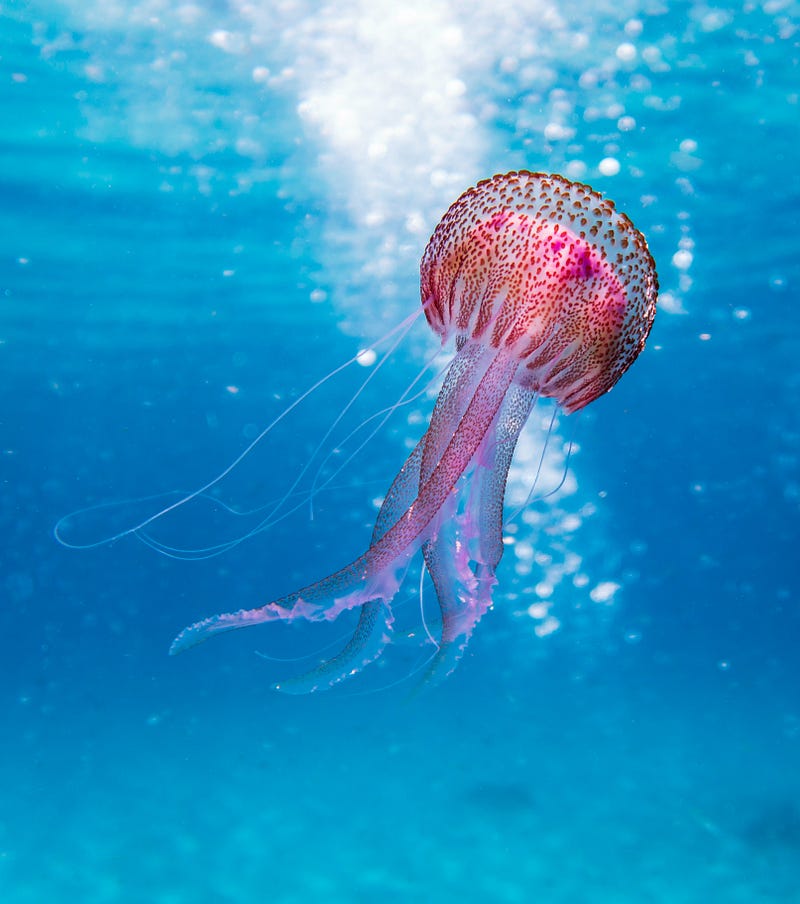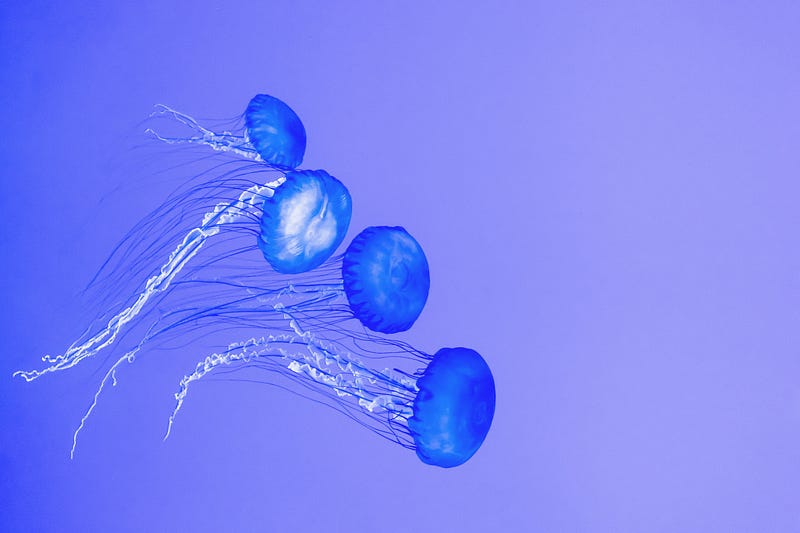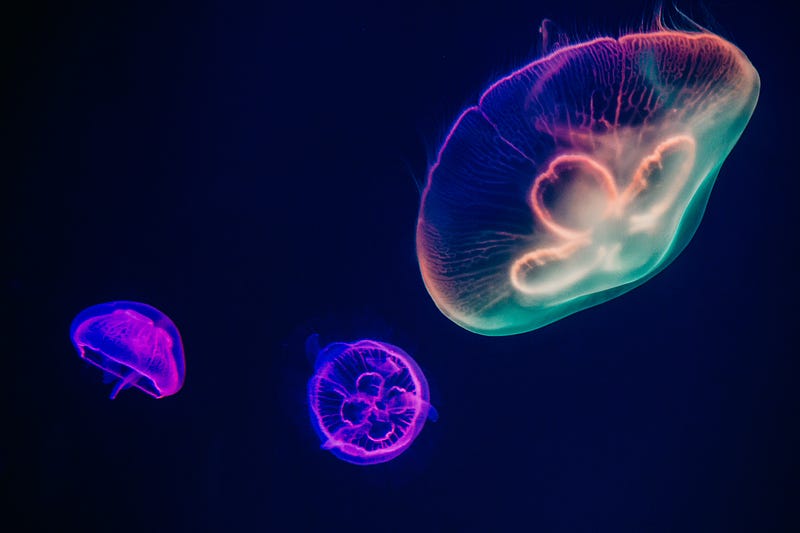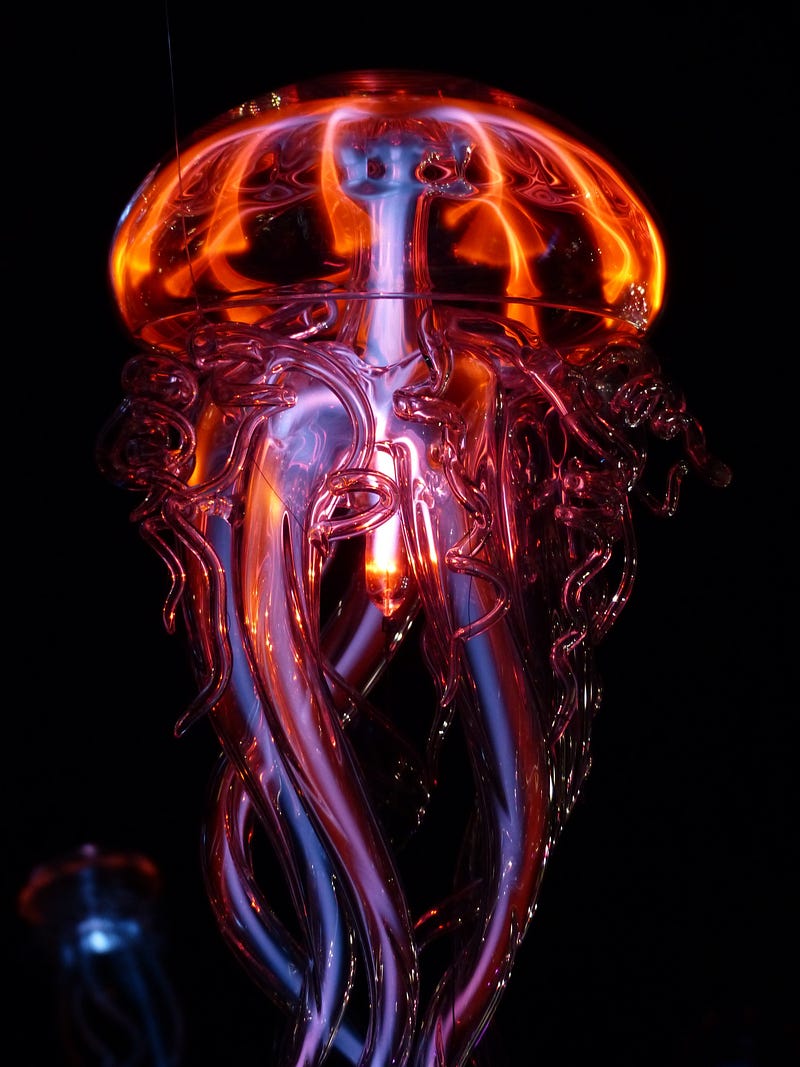Title: Surprising Intelligence of Jellyfish Revealed Through Research
Written on
Chapter 1: Understanding Jellyfish Intelligence
Contrary to popular belief, jellyfish possess a surprising level of intelligence. Recent research indicates that these ancient marine creatures, which have existed for over 500 million years, can learn from experiences, even in the absence of a central brain.
This observation is noteworthy, as it challenges the notion that only advanced animals with complex nervous systems can learn from their mistakes.
Section 1.1: The Complexity of Jellyfish
The human brain, with its 86 billion neurons, showcases remarkable cognitive capabilities acquired over millions of years of evolution. This complexity allows us to excel in memory and problem-solving, enabling us to learn and adapt based on past experiences.
However, recent discoveries reveal that even jellyfish, particularly the box jellyfish, exhibit the ability to learn. Despite having a rudimentary nervous system with only a few thousand neurons, these creatures can process various stimuli and alter their behavior accordingly.

[Photo by Pawel Kalisinski from Pexels]
Section 1.2: Groundbreaking Research
A recent publication in "Current Biology" details groundbreaking findings from a research team led by neurologist Anders Garm at the University of Copenhagen. The study delves into the evolution of animal nervous systems and reveals that jellyfish possess more advanced learning capabilities than previously thought.
“In the past, it was believed that jellyfish could only learn through simple habituation, such as becoming accustomed to a repetitive stimulus,” explains Garm. “Now, we understand that jellyfish can actually learn from their mistakes and adjust their behavior accordingly.”
Chapter 2: The Learning Process of Jellyfish
Researchers conducted experiments with Tripedalia cystophora, a small species of box jellyfish known for its mild sting. These jellyfish inhabit the Caribbean, often found in the roots of mangrove forests.

[Photo by Scott Webb from Pexels]
Section 2.2: Learning from Mistakes
To understand how these jellyfish navigate, scientists simulated their natural habitat in an aquarium. Observations showed that the jellyfish, equipped with 24 eyes and a simple nervous system, initially struggled but adapted their behavior after making a few errors.
“Interestingly, it takes about 3 to 5 mistakes for these jellyfish to change their navigation strategy, which is comparable to the learning process in more complex animals like flies and mice,” notes Garm.

[Photo by Irina Iriser from Pexels]
This remarkable finding highlights the potential for simple nervous systems to exhibit significant learning capabilities. Jellyfish are able to associate different stimuli with their behaviors, suggesting that associative learning may have played a crucial role in the evolution of intelligence across species.
“If you want to grasp how complex structures function, starting with simpler organisms can provide invaluable insights,” concludes Garm.
Chapter 3: Future Research Directions
Moving forward, researchers aim to identify the specific neurons involved in the learning process of jellyfish. Understanding these mechanisms could shed light on the presence of similar processes in other animals, ultimately advancing our knowledge of memory and learning across the animal kingdom.

[Photo by Irina Iriser from Pexels]
Attention all readers!
As content creators on Medium.com, we face minimal compensation for our hard work. If you find value in my articles, please consider supporting me on my “Buy Me a Coffee” page. Your small contributions can make a big difference in fueling my passion for creating quality content. Thank you for your support!

